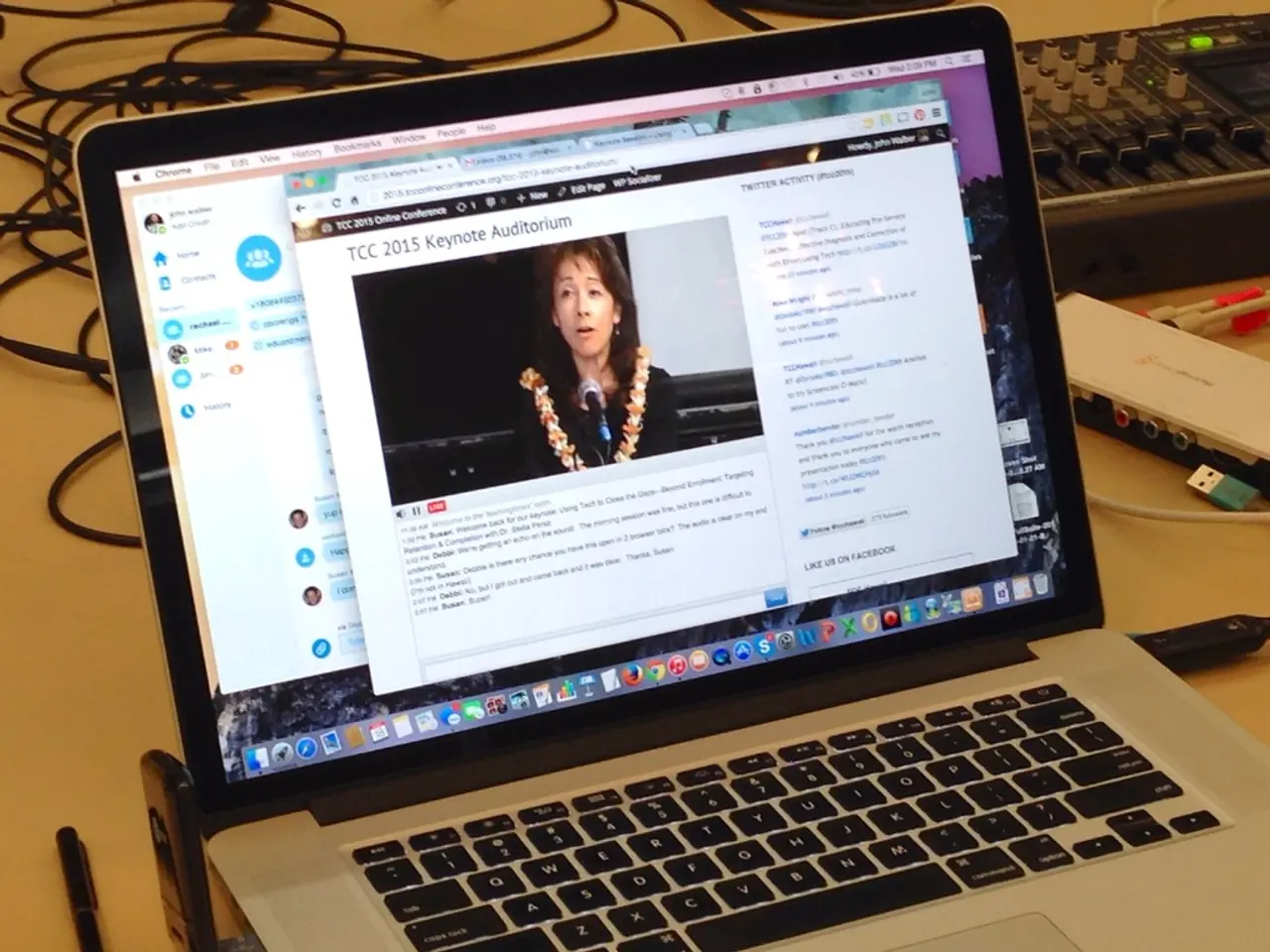Vodafone's fraud detection system registers 15 million suspicious calls
In the digital age, where communication is key, the threat of fraudulent schemes and scam calls looms large. Marcel de Groot, CEO of Vodafone Germany, has highlighted this concern, stating that aggressive sales hotlines without consumer consent and outright criminals seeking personal data or money under false pretenses pose a significant threat to mobile users.
Vodafone's mobile network handles several billion calls monthly, and while potentially fraudulent calls represent only a small fraction of the total call volume, the impact can be costly and damaging. To combat this, Vodafone has developed an anti-spam system, which relies on a constantly updated database of suspicious phone numbers.
This system works across all phone models and brands, including Freenet, as long as they operate on the Vodafone network. On average, the new security service warns 150,000 mobile users daily about potential fraud. In the past three months, it has warned nearly 15 million users about potential scam calls.
When a Vodafone customer receives a call from a suspicious number, a warning "Caution: Fraud Possible!" appears on their smartphone display. This alert serves as a reminder for users to be vigilant and check who's on the other end of the line. However, it's important to note that the warning does not claim to prevent all potential fraud but aims to help users identify and avoid suspicious calls.
The database used by Vodafone's anti-spam system is not exhaustive, as scammers often change their numbers. This means that future calls not currently in the database may not trigger a fraud warning. Other major mobile network providers like Deutsche Telekom and O2 Telefónica are developing their own anti-spam solutions but are not yet available on the market.
The initial evaluation of Vodafone's spam warning service was published in Düsseldorf. Despite the limitations, Marcel de Groot emphasized that each warning helps raise awareness and protect users from costly damages. He encourages vigilance in daily life, advising users to be cautious about scams.
While Vodafone's anti-spam system likely employs advanced technologies to detect and warn about potential scam calls—potentially using behavioral and reputation-based detection—the system’s effectiveness is not quantified in the available information. Users are still encouraged to be cautious about scams, indicating that anti-spam systems are not foolproof and rely on user vigilance alongside technical detection.
As more detailed performance data or user experience reports on Vodafone’s German anti-spam system become available, they would provide better insight into detection rates and system constraints. Until then, staying informed and vigilant remains the best defence against potential fraud.
- Marcel de Groot, CEO of Vodafone Germany, has emphasized the importance of cybersecurity in technology, encouraging vigilance against fraudulent calls and scams that pose a significant threat to mobile users.
- Vodafone's anti-spam system, relying on advanced technologies such as behavioral and reputation-based detection, serves as a crucial tool in the digital age, helping users identify and avoid suspicious calls, but it's not foolproof and relies on user vigilance alongside technical detection.




